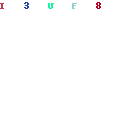Oil Spill in the Gulf
If a Hurricane Hits the Gulf Oil Spill, What Will Happen?
June 19, 2010Rob Guarino's Severe Weather Blog - ...What if 10-20 ft. seas occur and moves all the oil? Where does it go and how many miles of beach and wildlife will be affected?
Many questions to answer, so lets see what MAY happen ?
As a meteorologist my job is to look into the future to what "might" happen under certain conditions. The Gulf spill poses many problems from Texas to Florida and even the Mexican coast. I think the real issue here will be how much the spill is contained "when" a tropical system gets in the gulf.
THE SPIN WILL PIN THE OIL ONSHORE NOT OFF

So where is the loop current in relationship to the oil spill right now? The white outline is the spill; the read is the flow of the gulf waters...real close.

"Now that oil has entered the Loop Current, it is likely to reach Florida within six days," Dr Chapron said. "Since Envisat ASAR, ERS-2 and other SAR satellites are systematically planned to acquire data over the area, we will monitor the situation continuously."
The scientists warn however that since the Loop Current is a very intense, deep ocean current, its turbulent waters will accelerate the mixing of the oil and water in the coming days.
"This might remove the oil film on the surface and prevent us from tracking it with satellites, but the pollution is likely to affect the coral reef marine ecosystem," Dr Collard said.Combined efforts using satellite imagery and in-situ measurements of collected water samples will help to assess whether oil is in the deep waters of the ocean.
The Loop Current joins the Gulf Stream -- the northern hemisphere's most important ocean-current system -- sparking fears that oil could enter this system and be carried up to the US East Coast.
What is the Loop Current?
It is a flow of deep Gulf waters and where and how they travel. This water can also be as high as 95 degrees and also intensify a hurricane like Katrina did a few years back. Once oil gets into the loop, it will move under the surface as well as on the surface. It will become harder to track as the oil moves to the Florida coast. This could be a big worry in June and July and a HUGE problem in August.
So here is how we rate this situation based on storm tack and intensity.
Storm Tracks in the Eastern Gulf for 2010
Most storms do occur this second half of the month in the Western Gulf. That could still cause a problem? Why you might ask? The eastern side of a tropical system brings a south to northwest flow of air. That flow could cause the spill to move into the Louisiana wetlands and marshes. If the storm is big enough in size and wind speed at the surface it could also bring the spill to a greater mass to the AL, MS and FL panhandle beaches.
So if a hurricane hits the Eastern Gulf it would be a different story. The story would be one of HUGE problems. Could we see it rain oil? Would the storm surge carry oil inland for a mile, maybe more? Would every beach in the Eastern Gulf have oil balls and slicks? This is a real possibility because the containment ships out over the Gulf would have to move away from the spill, and it would spread very quickly unlike right now. No handle on the spill for a week would be a disaster.
They need to move very quickly on this situation and have plans to when a hurricane may strike. It's not a matter of What, it's a matter of When.
Where's the Oil Spill Headed?
Reasons Why the Oil Spill Cannot Be Fixed Artificially
May 29, 2010AboveTopSecret.com Forum
- The rate at which the oil is exerted exceeds our clean up capacity.
- I have no information on the size of the well itself (perhaps they don't want to tell us); however, I believe that it is large and highly pressured. This pressure will prevent the ability to "cap" it off. This means that we have to wait for the well to decrease in pressure.
- Even if the pressure eases, oil will continue to rise due to the difference in densities. Oil is less dense than salt water. This means that water will flow into the well, forcing oil up after the pressure decreases. I think the well must be capped before this happens.
- The damage already done will not "clean" itself up like the oil spills from earlier in the century. That's because the wetlands (kidneys of all waterways) have been destroyed by contractors and industrial and commercial interests.
- BP and the government don't give a crap. These guys do not believe in a clean world for future generations. Also, these guys can buy fish at $50/lb while we can't.
- We don't give enough of a crap. I live in Florida and, believe it or not, no one around me cares about the Gulf, which I fished in for over 10 years.
You know, it hurts to see how all human interventions tend to only destroy nature.



No comments:
Post a Comment